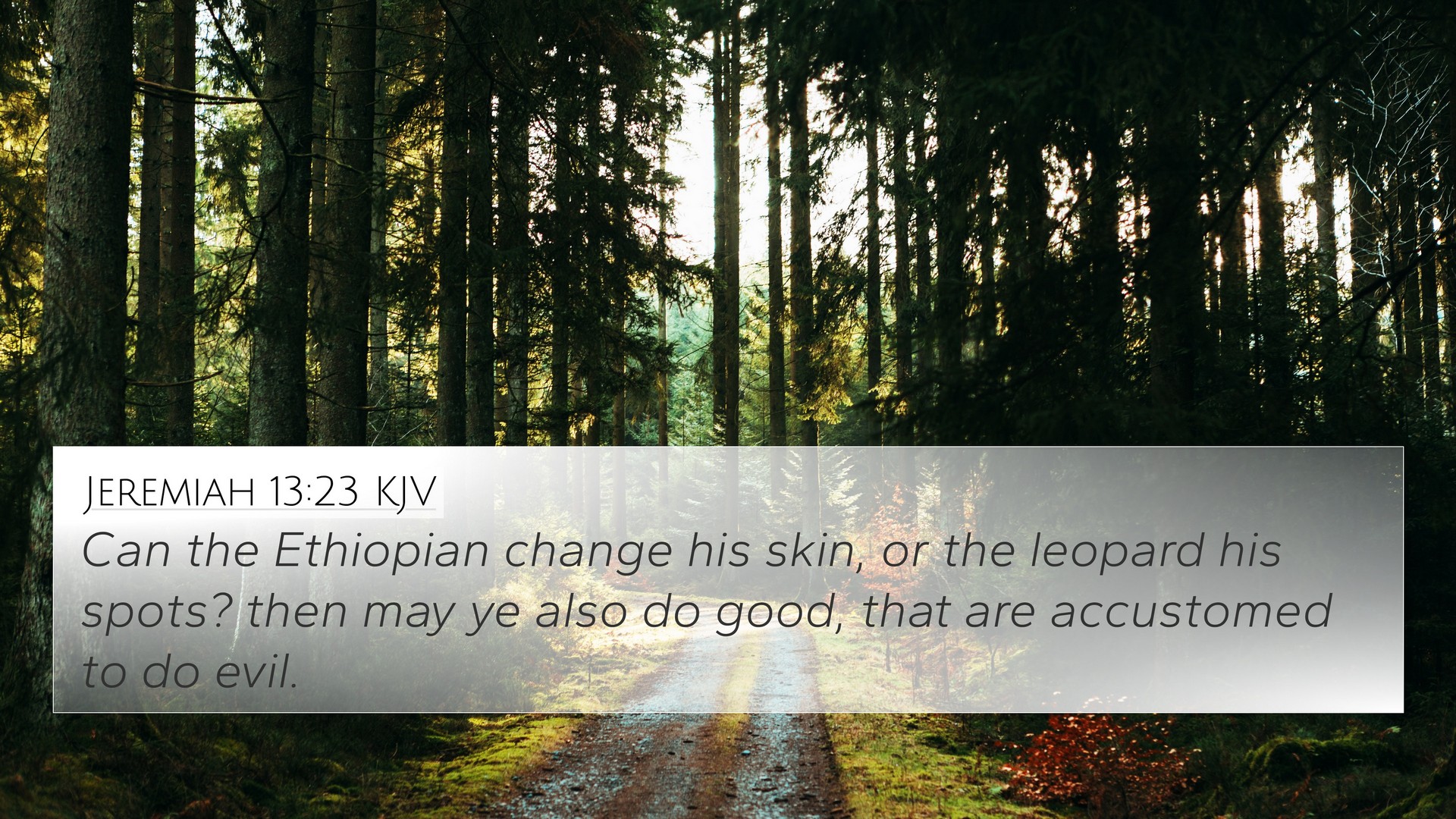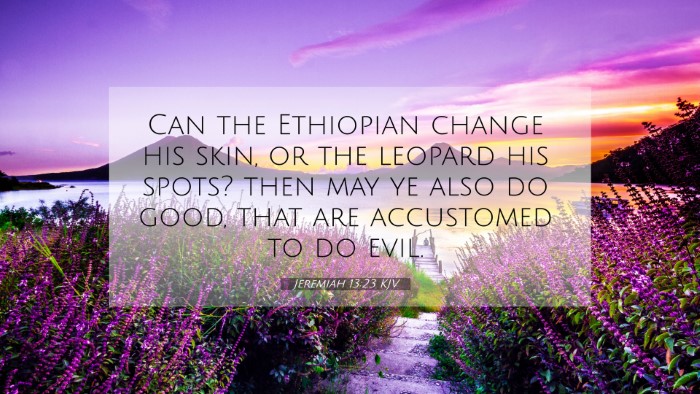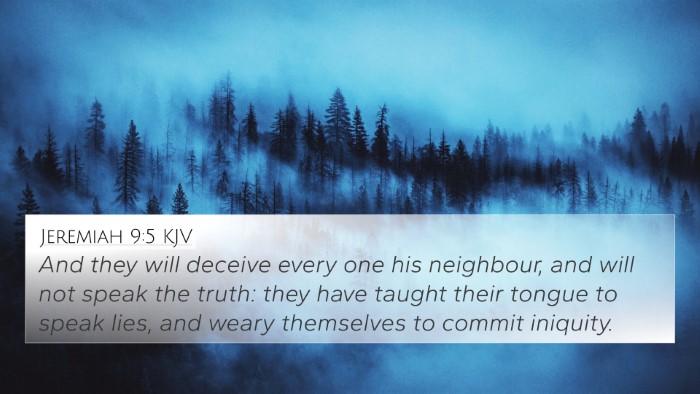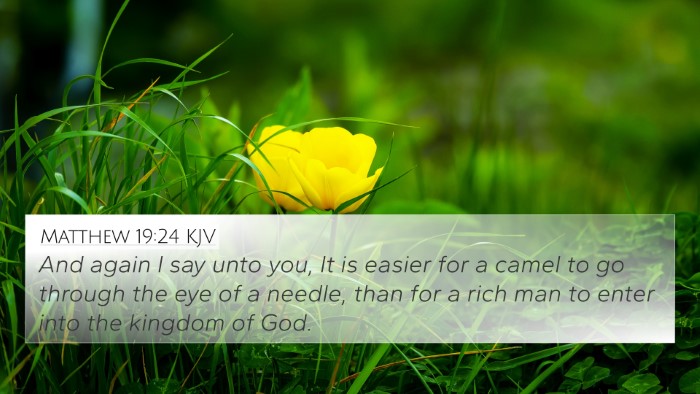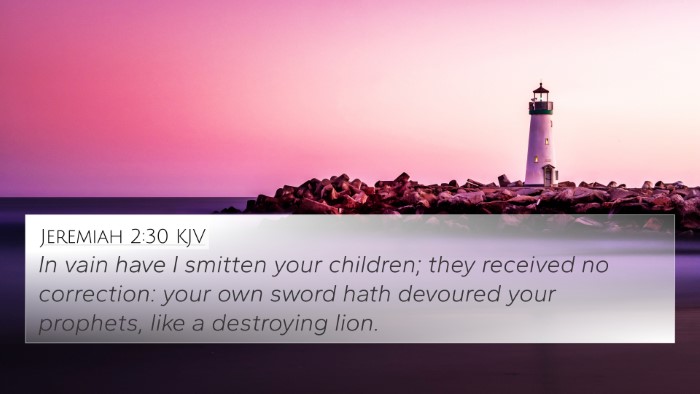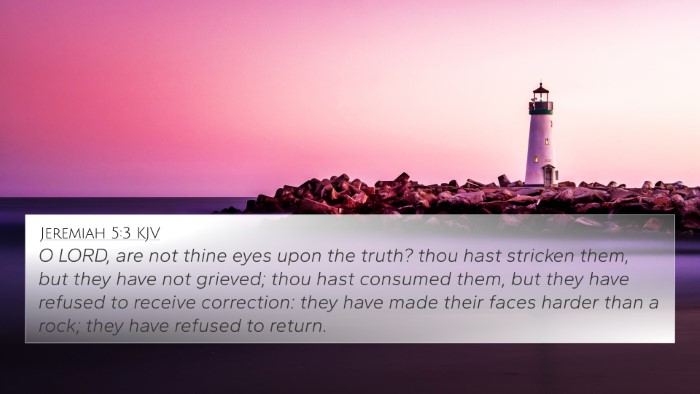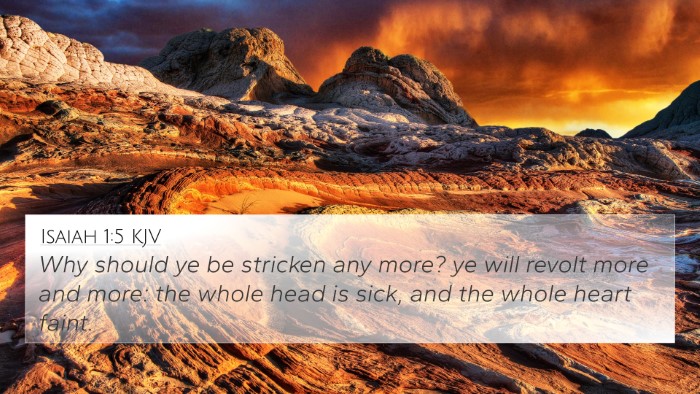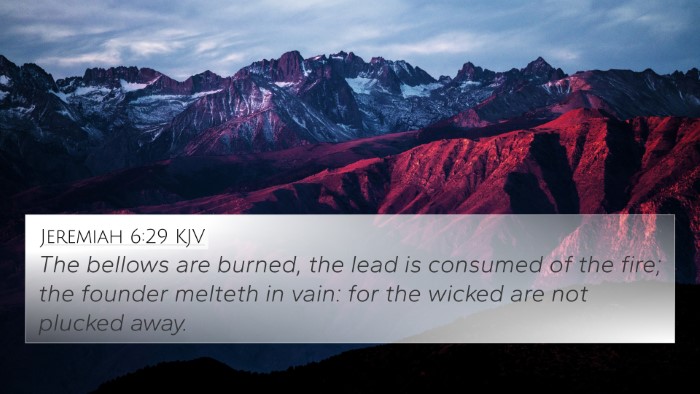Understanding Jeremiah 13:23
The verse Jeremiah 13:23 poses a profound question regarding the nature of transformation and the limits of human capability: "Can the Ethiopian change his skin, or the leopard his spots? then may ye also do good, that are accustomed to do evil." This scripture invites us to reflect on the possibility of moral and spiritual change in those who are habitually inclined towards evil.
Contextual Analysis
In the context of the Book of Jeremiah, the prophet is addressing the unrepentant nature of the people of Judah. They had repeatedly turned away from God and engaged in sinful practices. The imagery of an Ethiopian changing his skin or a leopard changing its spots illustrates the inherent difficulty, even impossibility, of changing one’s fundamental character without divine intervention.
Commentary Insights
Several prominent commentaries explain this verse in depth:
-
Matthew Henry:
Henry emphasizes the natural corruption of the human heart and suggests that just as a leopard cannot change its spots, those who are accustomed to doing evil will struggle to adopt good practices without a transformative work of God’s grace.
-
Albert Barnes:
Barnes notes that this rhetorical question emphasizes the despair of changing one’s nature. It serves to demonstrate that while people may desire to do good, their nature is corrupt, which can only be overcome through repentance and divine assistance.
-
Adam Clarke:
Clarke discusses the transformative necessity of grace for true change. He asserts that spiritual transformation is possible but requires active participation from the believer in cooperation with God’s transforming power.
Thematic Connections
This verse connects deeply with several themes within scripture that highlight human nature and the need for divine help:
-
Original Sin:
Illustrated in Romans 3:23 ("For all have sinned, and come short of the glory of God").
-
Redemption through Christ:
Reflecting on 2 Corinthians 5:17 ("Therefore if any man be in Christ, he is a new creature...").
-
Transformation by Renewing:
Seen in Romans 12:2 ("And be not conformed to this world: but be ye transformed...").
-
Grace and Change:
Addressed in Ephesians 2:8-9 ("For by grace are ye saved through faith...").
-
Obedience to God's Command:
As noted in James 1:22 ("But be ye doers of the word...").
-
The Role of the Holy Spirit:
Indicated in Galatians 5:22-23 ("But the fruit of the Spirit is love, joy, peace...").
-
Need for Repentance:
Emphasized in Acts 3:19 ("Repent ye therefore, and be converted...").
Inter-Biblical Dialogue
Jeremiah’s inquiry raises points that echo throughout the Bible and invites a deeper understanding of the need for grace in effecting change. The queries regarding the nature of man and the potential for good reveal recurring conversations in scripture about sin, redemption, and transformation.
Practical Application
For readers seeking to apply this insight, understanding the impossibility of change through human effort alone is crucial. As we engage in Bible cross-reference studies, consider using tools such as a Bible concordance and resources for Bible cross-referencing to deepen your understanding of how these principles interconnect throughout scripture.
Conclusion
Jeremiah 13:23 challenges us to acknowledge our limitations and the necessity of divine transformation. Through the lens of cross-referencing and thematic analysis, we are presented a broader scriptural context to explore and understand human nature’s inherent struggles. Engaging with these truths equips believers in their journey towards spiritual renewal.
